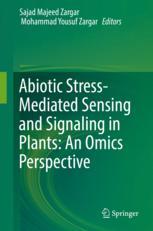

Most ebook files are in PDF format, so you can easily read them using various software such as Foxit Reader or directly on the Google Chrome browser.
Some ebook files are released by publishers in other formats such as .awz, .mobi, .epub, .fb2, etc. You may need to install specific software to read these formats on mobile/PC, such as Calibre.
Please read the tutorial at this link: https://ebookbell.com/faq
We offer FREE conversion to the popular formats you request; however, this may take some time. Therefore, right after payment, please email us, and we will try to provide the service as quickly as possible.
For some exceptional file formats or broken links (if any), please refrain from opening any disputes. Instead, email us first, and we will try to assist within a maximum of 6 hours.
EbookBell Team

4.4
72 reviewsThe natural environment for plants is composed of a complex set of abiotic and biotic stresses; plant responses to these stresses are equally complex. Systems biology allows us to identify regulatory hubs in complex networks. It also examines the molecular “parts” (transcripts, proteins and metabolites) of an organism and attempts to combine them into functional networks or models that effectively describe and predict the dynamic activities of that organism in different environments.
This book focuses on research advances regarding plant responses to abiotic stresses, from the physiological level to the molecular level. It highlights new insights gained from the integration of omics datasets and identifies remaining gaps in our knowledge, outlining additional focus areas for future crop improvement research.
Plants have evolved a wide range of mechanisms for coping with various abiotic stresses. In many crop plants, the molecular mechanisms involved in a single type of stress tolerance have since been identified; however, in order to arrive at a holistic understanding of major and common events concerning abiotic stresses, the signaling pathways involved must also be elucidated. To date several molecules, like transcription factors and kinases, have been identified as promising candidates that are involved in crosstalk between stress signalling pathways. However, there is a need to better understand the tolerance mechanisms for different abiotic stresses by thoroughly grasping the signalling and sensing mechanisms involved.
Accordingly, this book covers a range of topics, including the impacts of different abiotic stresses on plants, the molecular mechanisms leading to tolerance for different abiotic stresses, signaling cascades revealing cross-talk among various abiotic stresses, and elucidation of major candidate molecules that may provide abiotic stress tolerance in plants.